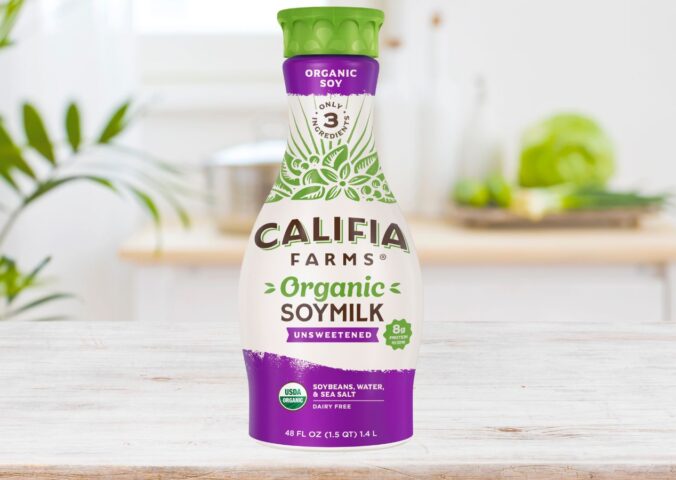Want to stay young and sharp? Eat more plant-based foods and lose a small amount of weight. That was the finding of a study that looked at the effects of diet and weight loss on brain aging and found that to reverse aging in the brain, choosing foods high in polyphenols and losing weight can benefit the brain.
The Green Mediterranean Diet, rich in fruits and vegetables and low in animal products, is known to benefit heart health, but this new study shows that eating more plant-based foods and losing even a small amount of weight can help keep your brain young.
The study, out of Ben-Gurion University in Negev, Israel, identified lifestyle factors that can influence brain age in as little as 18 months. Those included eating more polyphenol-rich foods, which benefits brain health, and losing weight, which also helps cognitive function and actually appears to reverse aging in the brain.
Switching to a Green Mediterranean Diet, which calls for avoiding red or processed meat and processed foods, and places an emphasis on eating more polyphenol-rich foods such as leafy greens, colorful fruit, high-fiber vegetables and whole grains, nuts, seeds and olive oil, positively affects brain health and can lead to weight loss that helps reverse brain aging.
The study, published in eLife, followed 300 participants for 18 months and found that obesity is linked to brain aging at a faster rate than would normally be expected. Weight loss, even losing just one percent of one’s total body weight, appears to reverse brain aging faster than expected.
The researchers calculated the impact of diet and weight on a person’s “brain age,” determined by how the brain appears on MRI scans, and determined that certain lifestyle factors such as healthy diet, being overweight or obese, and liver health all influence brain aging over relatively short time periods.
Losing weight helps brain health
Even just losing 1 percent of one’s body weight is enough to reverse brain aging, and made the brain appear nearly 9 months younger than expected at the end of 18 months. The benefits of losing even a small amount of body weight also impact liver fat and liver enzymes, and certain liver enzymes have been shown to negatively affect brain health in Alzheimer’s disease.
“We were encouraged to find that even a weight loss of one percent was sufficient to affect brain health and lead to a 9-month reduction in brain age,” says Professor Galia Avidan of the Department of Psychology and one of the study’s lead authors.
“Our study highlights the importance of a healthy lifestyle, including lower consumption of processed food, sweets, and beverages, in maintaining brain health,” says Dr. Gidon Levakov, a researcher at the Department of Cognitive and Brain Sciences and another lead author.
Reverse aging with plant-based diet

The findings show that lifestyle changes such as following a mostly plant-based diet, such as the Green Mediterranean diet, can promote weight loss and influence the brain’s aging trajectory. The researchers hope that these findings on brain aging can be applied in the real world to see better clinical outcomes for patients.
In addition, the study shows that making small lifestyle changes such as avoiding processed food with added sugar and unhealthy fat, as well as staying away from red and processed meat, can have a major and quick benefit to brain health. These types of simple lifestyle interventions can have a positive impact on brain health potentially have positive clinical and societal benefits to people suffering from Alzheimers and dementia.
This latest study is the first to link eating a Green Mediterranean, high-polyphenol food diet to brain health. The Mediterranean diet prioritizes lean protein, whole grains and vegetables and fruit, but still allows animal products in moderation such as eggs and fish. The Green Mediterranean diet calls for eating more abundant dietary polyphenols, which are a class of phytochemicals found in plant foods that carry health benefits such as antioxidants that fight aging on a cellular level. The Green Mediterranean diet also calls for avoiding red and processed meat and getting protein from legumes, whole grains and plant-based sources.
Walnuts, green tea, and duckweed boost brain health
Along with avoiding packaged and processed foods that have been stripped of their natural nutrients, the Green Mediterranean diet encourages eating nuts and seeds. The dieters on the Green Mediterranean diet also consumed one portion of walnuts a day (or 28 grams), as well as three to four cups of green tea and one cup of Mankai duckweed green shake every day for 18 months.
Researchers found that this combination helped to reverse brain aging. Mankai duckweed is high in bioavailable iron, B12, and 200 kinds of polyphenols and protein, and can be used as a protein source when avoiding meat.
Foods to eat for brain health
Just as polyphenols in plant-based foods such as vegetables, fruits, nuts, seeds and legumes add antioxidants that fight aging on a cellular level, they also appear to help you think sharper, faster and make brain connections that are indicators of a “young acting” brain.
Walnuts, mushrooms, green tea and several other foods have been shown to be beneficial to cognitive function, studies, have found. These foods each appear to boost nerve cell growth and improve memory, while slowing memory loss.
Takeaway
This Israeli study is just the latest research to recommend eating more fruit and vegetables for overall heart health and brain health. The researchers concluded that following the Green Mediterranean diet, rich in high-polyphenol foods and low in red and processed meat and highly-processed foods, can lead to weight loss, which helps to reverse aging and may boost cognitive and mental health.






